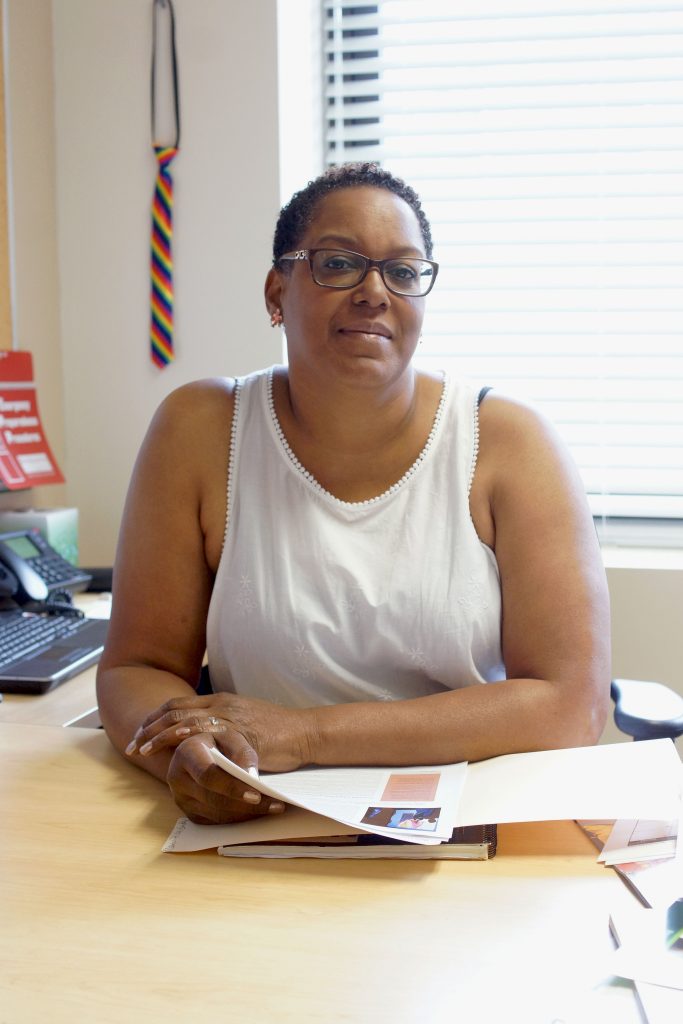
This upcoming fall semester, Binghamton University will open its first LGBTQ Center, and the staff has already gotten to work planning events and activities for the academic year.
On April 1, Kelly Clark formally became the founding director of the LGBTQ Center at BU. She previously served as a counselor at the Gay Alliance of the Genesee Valley and as the director of multicultural affairs at SUNY Geneseo.
In order to help promote and sustain the inclusivity of LGBTQ students on campus, Clark and the Center will be hosting various events. On August 24, the day before classes begin, the Center will hold its Rainbow Welcome, an orientation for LGBTQ students. Clark said that it is open to all students, but specifically is targeted towards those who identify as LGBTQ or come from LGBTQ families.
“If you’re coming to college and you’ve got two moms or two dads, there is a particular coming out process for you as well,” Clark said. “As you’re meeting new people there’s a coming out process of telling people you have two moms or two dads, and that can be just as stressful as coming out yourself. We want to be sure that children of LGBTQ families also know that our programming is for them.”
The Rainbow Welcome will offer various activities and giveaways and will help students get to know each other, as well as have upper-level students talk about being LGBTQ on campus. Students will also get the opportunity to interact with clubs and organizations such as the Rainbow Pride Union and SHADES.
Pride Month takes place across the world in June, but since school is not in session during this month, October will be recognized as Pride Month at BU. According to Clark, each year the month will be given a theme for them to focus on, this year’s being “What’s in a Name?” The Center will focus its events on topics concerning identity and the way certain terms are used, such as if the word “queer” has negative or positive connotations.
As a part of Pride Month, the Center will be hosting the first annual international LGBTQ human rights lecture. This year’s speaker will be Maurice Tomlinson, a Jamaican human rights attorney who has fought for challenges to the constitutionality of anti-LGBTQ laws throughout the Caribbean. He is known, amongst other things, for the documentary “The Abominable Crime,” which features his efforts to counteract homophobia in Jamaica.
“The idea for the lecture is that it’s the Center’s contribution to the worldwide values that the University holds in terms of deepening students connections to the world,” Clark said. “The idea is that we have boots-on-the-ground activists who are working for LGBTQ human rights and inclusion in other parts of the world invited to the campus to talk about their work.”
Clark and her staff, which is comprised of both graduate and undergraduate students, have not yet moved into the new Center, which will be located in the ground floor of Library South. She said that they are expecting to move in by September as the semester is getting started. In addition to the events she has planned, Clark has been focusing on completing the Campus Pride Index, which is a national listing of LGBTQ-friendly colleges and universities. Each institution is rated on a five star scale based on its LGBTQ inclusivity and supportive initiatives, and Clark said that being able to compare BU to other schools will be a good way to see where work still needs to be done.
“If we are going to be the premier public institution, which is the way that we talk about our aspirations at Binghamton University, then premier to me means five stars,” Clark said. “I think we will find during the process of completing the index that there will be some things that we need to work on.”
Precious Johnson, the president of SHADES and a sophomore majoring in theatre, also said that there are still things to be done at BU. She said that educating students on campus is the best way to help further inclusivity.
“I believe we have our work cut out for us when it comes to addressing the division of LGBTQIAP organizations and those who are not,” Johnson said. “Bridging that gap alone can help us solve many of the other issues with our community on campus given that is where it stems from.”


